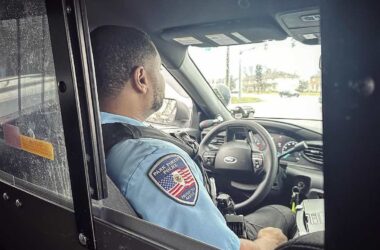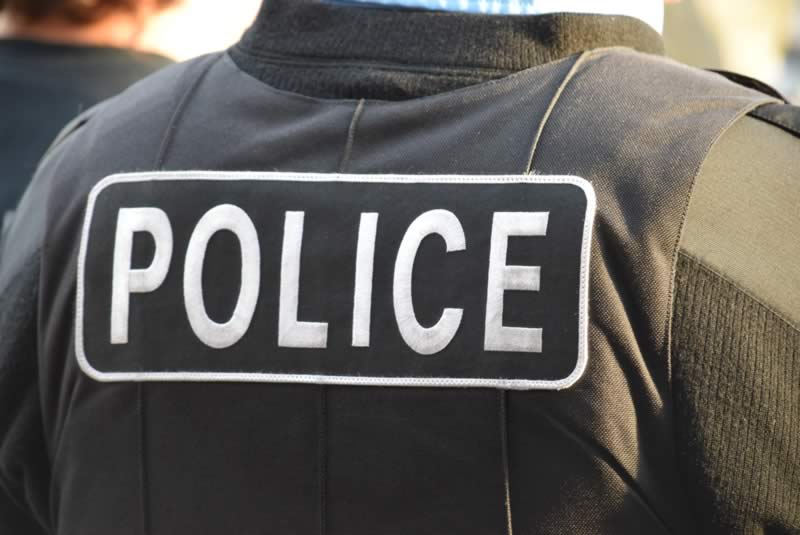San Diego, California–(ENEWSPF)–October 1, 2012.
Thank you, Chief McNeil, for those kind words; and for the example of service – and outstanding leadership – that you are providing as President of the International Association of Chiefs of Police. It’s a privilege to stand with you this morning – and to join with so many colleagues and friends – as we celebrate everything that our nation’s law enforcement community – and our partners around the world – have helped to achieve; and as we honor all that you’ve sacrificed in the service of others.
I’d especially like to thank Executive Director Johnson – as well as the IACP’s Board of Directors, leadership team, and professional staff – for your work in bringing us together today; and for including me, once again, in this important event. It’s a pleasure to share the stage with such a distinguished group of law enforcement professionals – including INTERPOL President Khoo, Deputy Director Joyce, and Acting Assistant Attorney General Leary. And it’s a special privilege to join you in congratulating this year’s International Police Officer of the Year – Lieutenant Adam Kosheba, of the Pennsylvania State Police – whose heroic actions exemplify the very best of what it means “to protect and serve.”
Thanks to the work of extraordinary public servants like Lieutenant Kosheba; the dedicated efforts of the IACP’s 20,000 members; and the consistent engagement of your supporters worldwide, we all can be proud of the progress that this Association has inspired, and helped to bring about, in the year since we last came together. Despite unprecedented budgetary challenges – and a range of serious threats – you’ve found ways to advance our fight against crime and violence; to protect the safety – and wellness – of your rank-and-file; to effectively advocate for the latest in cutting-edge tools and technologies; and to foster increased levels of cooperation, collaboration, and transparency across jurisdictional lines, levels of government, and even international borders.
In short, you’ve upheld the finest traditions – of service and excellence – that the IACP has come to embody over the last 119 years. And you’ve helped to ensure that America’s premier law enforcement organization continues to be a driving force for progress.
That’s one of the many reasons why I’ve made it a priority to take part in this event today – and every year since becoming Attorney General. I’m here to personally thank you for all that you do, but also to hear from, to learn from, and to assure each of you that – so long as I have the privilege of leading our nation’s Department of Justice – I’ll always have your back; just as, in recent months, I’ve been grateful – and very moved – to know that you’ve had mine. I want to thank you all for that.
Not only have you supported me – you’ve continued to inspire me. At every stage of my career – as a prosecutor, as a judge, and as the brother of a retired police officer – I’ve held a deep appreciation for the obstacles, the threats, and the challenges that law enforcement officers face on a daily basis. And I recognize that, in many ways, your work has never been more difficult.
Yet, despite current challenges and threats – as a result of your efforts – overall national crime rates remain at historic lows. Across the United States and around the world, your work is enabling us to make a meaningful, measurable difference in fighting terrorism, transnational organized crime, and human trafficking; in protecting the most vulnerable members of society; in combating hate crimes and civil rights violations; and in preventing the gun-, gang-, and drug-fueled violence that has stolen too many promising futures. At every level, the broad-based, collaborative public safety approach that the IACP has long championed is streamlining investigations and prosecutions – and bringing law enforcement leaders, policymakers, and community stakeholders together to address some of today’s most complex and intractable public safety challenges; and to expand service opportunities for first responders.
With these goals in mind, over the last three years, the Department’s Community Oriented Policing Services – or COPS – Hiring Program has awarded a total of $1.5 billion to create or protect 7,000 jobs in local law enforcement. Earlier this summer, I traveled to Philadelphia to announce a new round of grants – totaling over $111 million – that will save or create jobs for roughly 800 officers throughout the country – including nearly 200 who will be saved from layoffs and more than 600 military veterans who will be hired as new law enforcement officers.
Through this type of direct assistance – and thanks to flagship grant programs like Byrne-JAG, which has enabled the Justice Department to award more than $3.5 billion to our state and local law enforcement partners since 2009 – we are helping to close budget gaps, to provide access to the tools and technologies you need, to keep officers on the beat, and – I’m proud to say – to keep our law enforcement partners safe.
As we’ve been reminded – far too often – every time you put on the badge, you face a range of significant – and often unpredictable – threats. We saw this here in San Diego, just last week, when two brave San Diego County Sheriff’s Deputies – Detective Ali Perez and Sergeant Craig Johnson – were shot while attempting to question a man suspected of child abuse. Today, as we wish these injured colleagues a full and speedy recovery, and as we hold them and their families in our thoughts and prayers, we also must rededicate ourselves to protecting each member of the “thin blue line” – a line that’s defined by valor, heroism, selflessness, and sacrifice.
Since October 2011 – when we gathered in Chicago for last year’s IACP conference – our nation has mourned the loss of120 brave officers, including at least one police chief – Michael Maloney, of the Greenland, New Hampshire Police Department. Each one of us has felt this loss – and bid farewell to far too many colleagues and dear friends. Now, it’s true that we can take some measure of comfort – and encouragement – from the fact that – compared to this time last year – line-of-duty officer deaths are down nearly 30 percent. But even a single untimely loss is too many.
That’s why today’s Justice Department is determined – and I am determined – to meet acts of senseless violence with renewed vigilance. It’s also why we’re striving to promote innovative, evidence-based strategies, programs, and information-sharing tools that can help us to analyze and address specific types of threats.
Through an initiative spearheaded by BJA and the COPS Office – known as the Officer Safety Working Group – the Department is collaborating with law enforcement organizations like the IACP to provide a platform for researching and disseminating threat information. And through a groundbreaking effort known as VALOR – which I announced at an IACP conference two years ago – we are providing extensive technical assistance and invaluable training opportunities to help officers anticipate, prevent, and survive violent encounters. To date, more than 6,000 law enforcement professionals have participated in 41 VALOR training sessions across the country. And the Initiative has distributed more than 8,000 Officer Safety Toolkits, which include the latest information on how to respond to a range of threats – including ambush-style assaults.
In addition to these training and education opportunities, we’re also making resources available – through initiatives like BJA’s Bulletproof Vest Partnership Program – to provide law enforcement with equipment that – quite simply – is saving lives. This year alone, the Department has awarded more than $28 million under this program to help over 4,200 jurisdictions purchase more than 96,000 protective vests. In just the last eight months, this type of body armor has saved the lives of at least 25 law enforcement officers – including 7 who were wearing vests purchased, in part, with federal funds.
In addition to this lifesaving program, we’ve also made significant investments – in cities like Philadelphia and Oakland – to “surge” federal resources in response to alarming spikes in local homicide rates. And, across the country, we’re working alongside local leaders to gather and analyze intelligence, to target crime “hot spots,” and to build the capacity needed to help officers respond to violent threats and circumstances.
Because of these and other critical efforts – including IACP’s new Center for Officer Safety and Wellness, the Reducing Officer Injuries Project, and research that’s being conducted on the Prevention of Violence Against the Police – we have good reason for optimism. As a result of the IACP’s renewed focus on the prevention of officer suicide, we’re working diligently to address areas of concern and better equip officers to protect themselves. At the same time, I am realistic and I recognize that we will never completely eliminate the criminal elements that threaten our communities – and our first responders. That’s why the Department is also moving to strengthen our support for the families of law enforcement officers – especially in the toughest of times.
To that end, we’re working to reinforce critical support networks for the loved ones of those killed or injured in the line of duty – particularly through our Public Safety Officers’ Benefits Program. Although there’s no question that the PSOB program does good work, I have heard – and I understand – the concerns that IACP’s leadership, and others in the law enforcement community, have raised. And I’m committed to ensuring this program lives up to its intent.
More than three decades ago, the PSOB Act was designed to offer peace of mind to men and women who put their lives on the line each day; and to ease the economic and emotional burden placed on the survivors of officers who make the ultimate sacrifice, or are permanently disabled, in the line of duty. It is a statement about the value that America places on the work of this dedicated group of public servants.
The Department of Justice shares this value. And we’re working to implement fundamental changes that will set the PSOB program on a new trajectory for timeliness, transparency, efficiency, and responsiveness. Acting Assistant Attorney General Mary Lou Leary is spearheading these efforts. And both she and I will continue to rely on IACP’s leadership and expertise in helping to ensure that our law enforcement partners have the support and assistance that you deserve.
We’ll also be turning to you – and counting on your engagement – in our ongoing work to promote and implement the kinds of comprehensive public safety solutions that the IACP has long championed. For example, many of you have worked to highlight the importance, not only of getting criminals off the street – but also of keeping them from re-offending when they rejoin their communities. Through the Federal Interagency Reentry Council – which is comprised of 20 federal agencies, and which I am proud to chair – my colleagues and I are striving to amplify your efforts. We’re working to reduce future victimizations, and provide direct support to the local stakeholders who have always stood at the forefront of this work.
I’m pleased to report that, according to a new study – that was made possible by the Department’s Bureau of Justice Assistance, and released by the Council of State Governments just last week – it’s clear that our approach is working. Thanks to the collaborative efforts of law enforcement leaders, community-based organizations, and departments of corrections – as well as a variety of groundbreaking projects that have been funded by BJA – like Second Chance and Justice Reinvestment grants – a number of states have shown significant reductions in the three-year recidivism rate. For example, in Ohio and Texas, the report showed that this rate declined by 11 percent. In Kansas, it dropped by 15 percent. And in Michigan, it fell by an astonishing 18 percent.
Without question, these are encouraging signs. But they cannot be stopping points. In order to build on this progress – and help more states to achieve similar gains – today, I am proud to announce that the Department will distribute more than $6 million in the form of 7 new recidivism reduction awards. These investments are designed to aid in the development, implementation, and expansion of proven strategies for intervention. They also reflect our commitment to providing our state and local partners with the resources necessary to improve public safety policies on both the front and back ends of overburdened justice systems. And I’m eager to see where these investments help take us from here.
Today, as we look toward this future, and as we come together – from across the country, and around the globe – to discuss the goals and obligations we share, to celebrate all that’s been accomplished over the past year – I can’t help but reflect on the critical difference that each of us can make. And I’m reminded of the essential role that international groups like the IACP must continue to fulfill – in determining the present path, and shaping the future course, of law enforcement at every level.
This is why, as Attorney General, I’ve traveled extensively – not just around the United States, but throughout the world – to meet with my counterparts and law enforcement colleagues; to forge and strengthen vital relationships; and to facilitate cooperation between governments, private organizations, and leaders like you. Just last week, I appeared before the United Nations – to pledge that the United States will keep striving to uphold the rule of law; to advance the goals of international peace and security; to lead global efforts to protect and defend human rights; and to move forward aggressively in the ongoing fight against crime, corruption, and terrorism.
I was honored to represent our country, and to make these commitments on behalf of our government. But the fact is that I won’t be able to keep of any these promises without each and every one of the people in this room – and your colleagues across our law enforcement community.
Of course, as IACP members, you understand this. You recognize that individual efforts have a broad and lasting impact. And you understand that, today, we have a unique and important opportunity – to help shape the future by doing what is necessary and what is right; and to keep proving that, even in times of challenge, progress is possible.
So, as we take up the difficult and often dangerous work before us; as we fight to secure our communities and keep criminals off the streets; and as we work to safeguard – and to honor – all who wear the badge – I want you to know that I am proud to count each of you as colleagues and partners. I am privileged to stand with you in serving the citizens we’ve sworn to protect. And I look forward to all that we must – and that we will – achieve together.
Thank you.
Source: justice.gov








